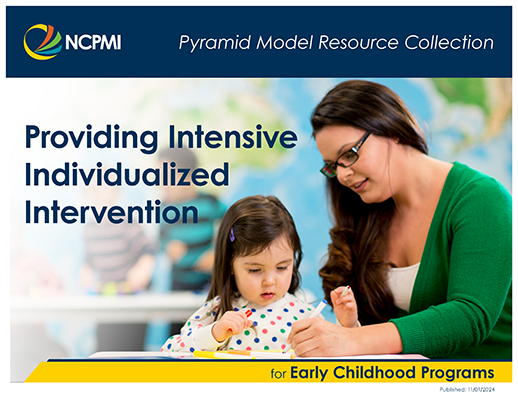The National Center for Pyramid Model Innovations (NCPMI) works to improve state and local capacity to implement, scale-up, and sustain effective practices and policies to equitably support the social, emotional, and behavioral outcomes of young children with, and at risk for, developmental delays or disabilities. NCPMI assists states and programs in developing sustainable systems for the implementation of the Pyramid Model for Promoting Social-Emotional Competence in Infants and Young Children (Pyramid Model) within early intervention and early education programs. We do this with a focus on: improving the social, emotional, and behavioral outcomes of young children birth to five; eliminating the use of inappropriate exclusionary discipline practices; promoting family engagement; using data for decision-making; increasing the use of trauma-informed and responsive practices; and fostering the inclusion of children with disabilities.
Resource Spotlight

Pyramid Model Resource Collection: Providing Intensive Individualized Intervention
This resource provides teams and individuals with a wealth of resources and materials on Functional Behavioral Assessment (FBA) and the Individualized Positive Behavior Support (IPBS) process used for Intensive Individualized Interventions.
Webinars
Get Training

Training modules on evidence-based practices at all tiers of the Pyramid Model, including understanding behavior, function-based teaching, and developing behavior support plans.
Conference

National Training Institute on Effective Practices: Addressing Challenging Behavior
Get the latest updates. Join our mailing list.
Have a question? Want to give us feedback? Contact us.



